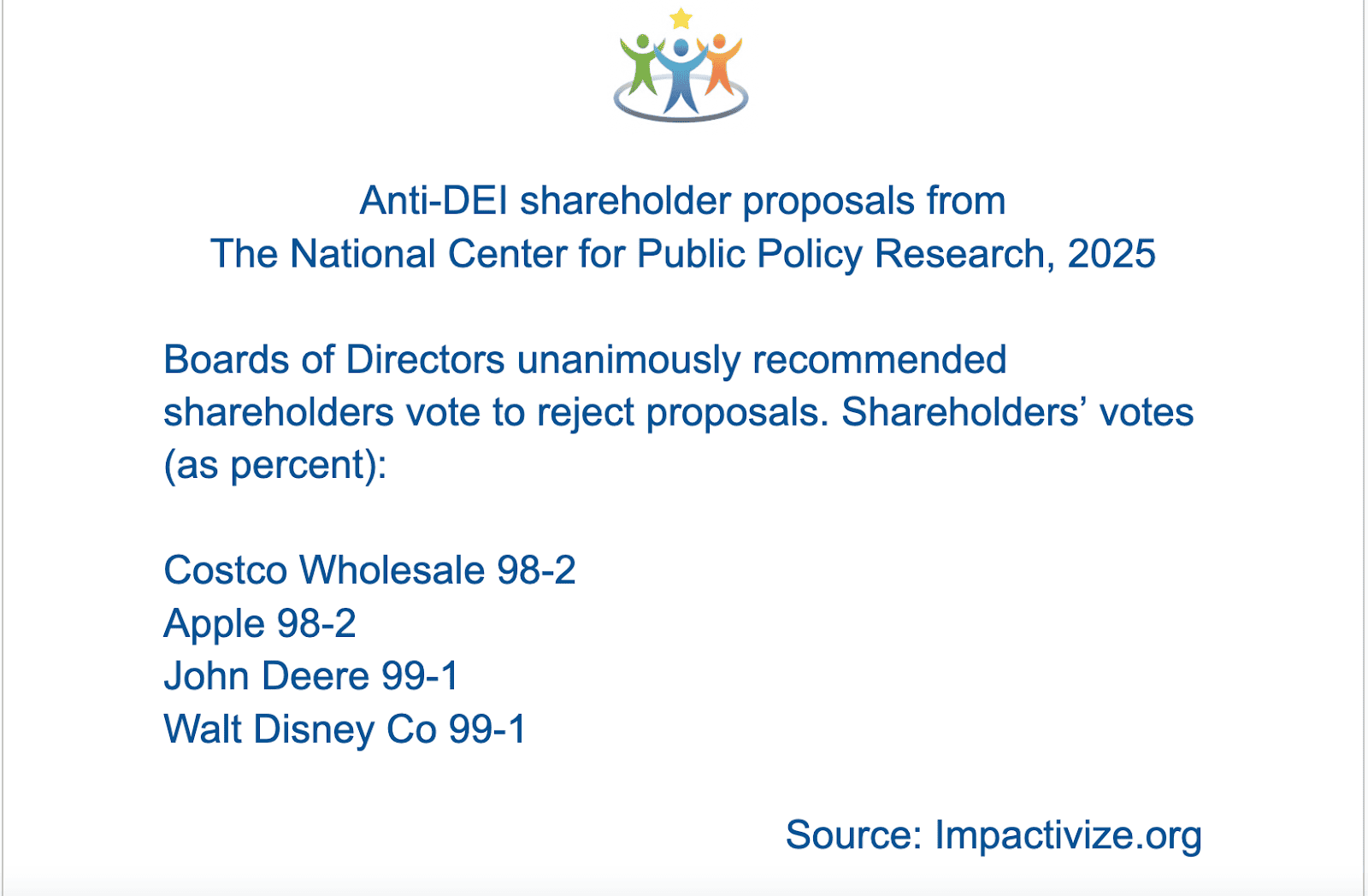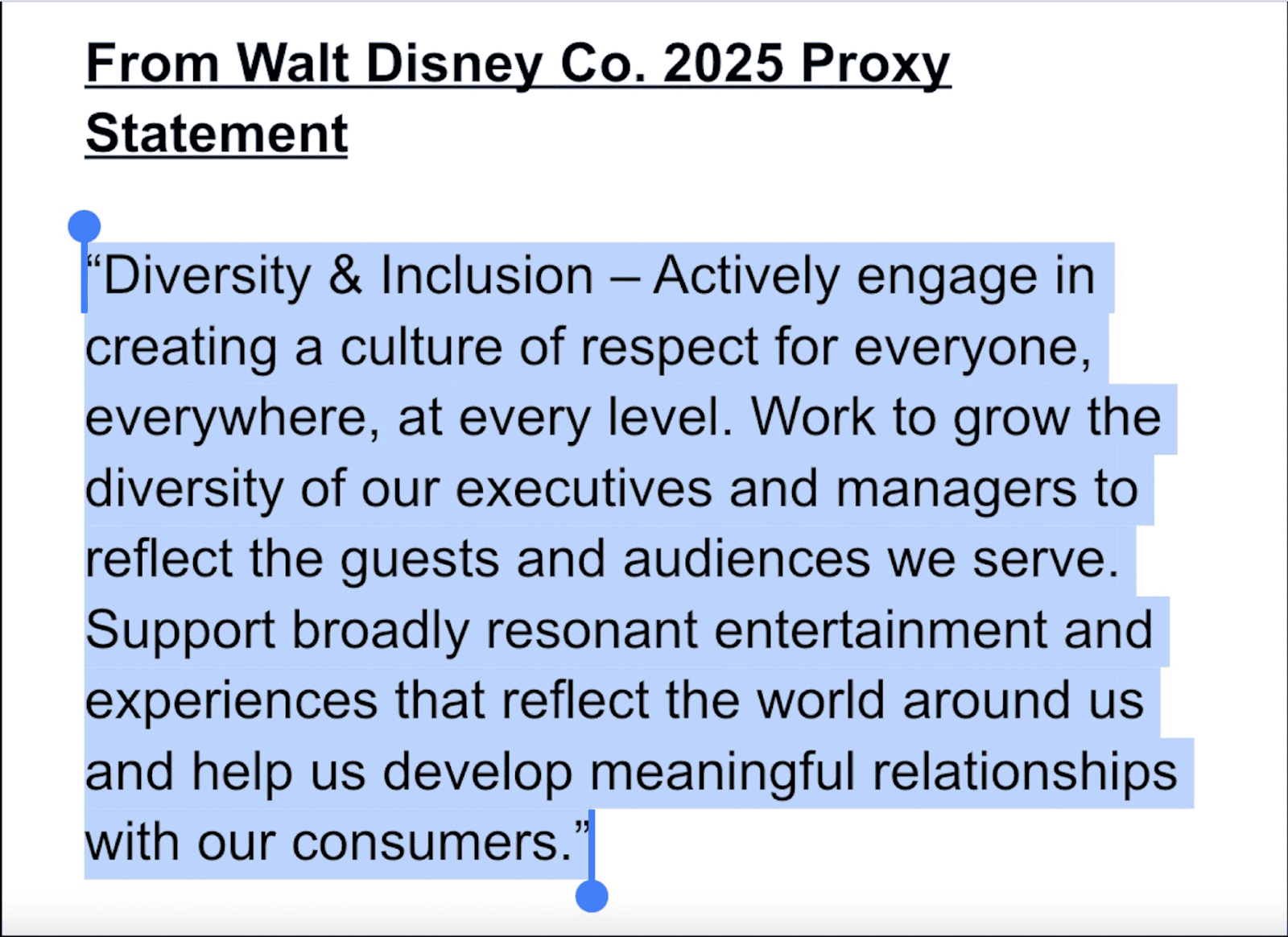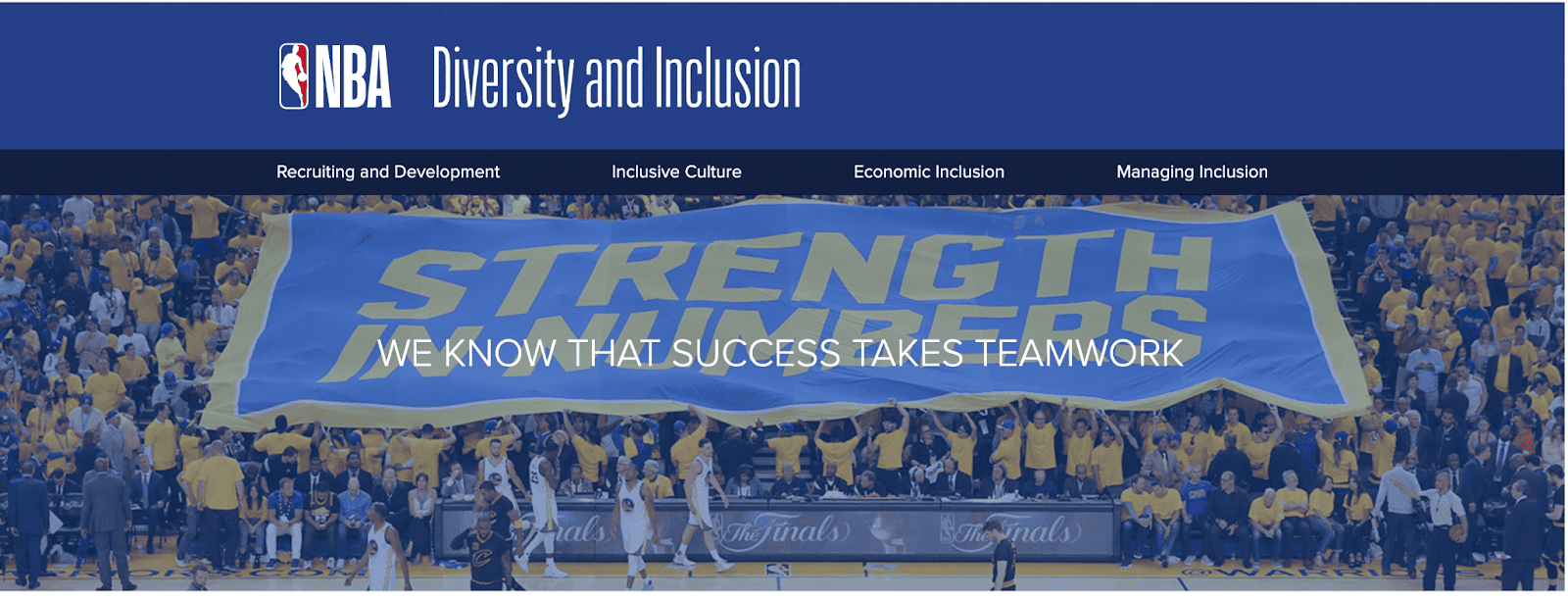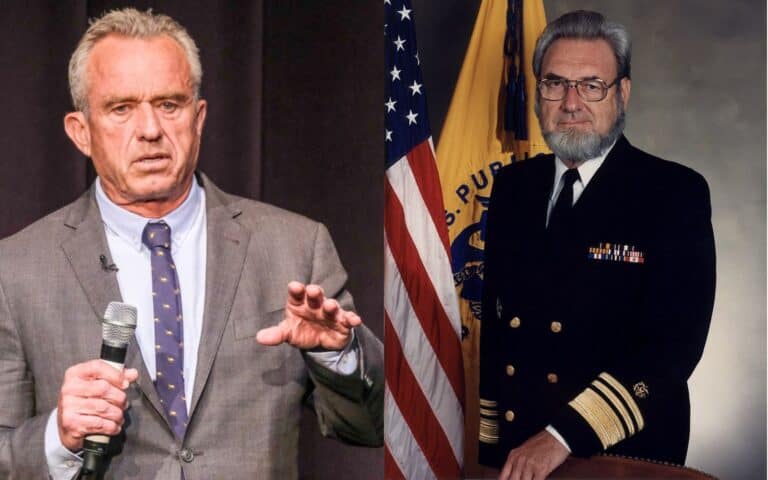Levi’s Board Defends DEI, Tells Shareholders to Vote on April 23
Levi Strauss & Co. shareholders will vote at the company’s annual meeting on April 23rd on a proposal requesting that Levi’s “cease DEI efforts,” according to the company’s 2025 proxy statement.
The Levi’s Board of Directors unanimously urges shareholders to reject the anti-DEI proposal, which is presented by nonprofit group, the National Center for Public Policy Research (NCPPR).

The NCPPR has overwhelmingly lost its anti-diversity proposals in shareholder votes this year at Costco, Apple, John Deere, and the Walt Disney Company. A representative from the NCPPR closed their argument at shareholder meetings with: “DEI is out, merit is in.” The DEI v. merit myth has been thoroughly debunked. And shareholder votes show that DEI is in, bigots are out.

The Levi’s Board responded to NCPPR’s anti-DEI proposal in its proxy statement: “Diversity and inclusion principles are critical in ensuring that our products reflect and are relevant to our diverse global consumer base.”
The Board stated, “we believe in the strong business case for a diverse and inclusive workforce because it supports company performance and also enhances our culture and the well-being of those who make our Company thrive: our employees. Our ‘One Team’ approach is about harnessing our talent, culture and values and we believe it is a competitive advantage and serves as a driver of business results.”
That DEI initiatives drive business results is no secret. Studies from consulting groups like McKinsey and the Boston Consulting Group show DEI programs are good for the bottom line. And recent results bear out their findings.
Costco saw an increase of 7.7 million visits, while Target experienced a decline of 5 million during a four-week period that ended in February (Numerator). The shift in shopper behavior may be linked to Target’s rollback of DEI initiatives, which affected Black and Hispanic consumers, while Costco maintained its strong DEI stance, Black Enterprise Magazine reported.
The NAACP issued the Black Consumer Advisory in February encouraging Black consumers (and their allies) to leverage their nearly $1.7 trillion a year spending power at businesses that align with their values. NAACP President & CEO Derrick Johnson said in a statement: “We’ve said it before and we’ll say it again–diversity is better for the bottom line.”
But overwhelming bottom line indicators and shareholder votes at some of America’s largest corporations in support of diversity and inclusion initiatives are not stopping government forces from continuing to attack DEI initiatives in the private sector.
President Trump issued an Executive Order on January 21, 2025, ordering all agencies to “combat” DEI in the private sector. His minions are following through on his orders.
After the shareholders of Costco voted by a tally of 98-2 percent to reject an anti-DEI proposal in January, 19 state attorneys general, led by AGs from Iowa and Kansas sent a letter to Costco President and CEO Ron Vachris demanding the company “repeal” its DEI practices, giving the company 30 days to respond. Costco has not issued a public response. No one from the attorneys general offices of Iowa or Kansas have responded to inquiries from the Queen Zone.
Trump’s federal agencies are also following the president’s orders. The Federal Communications Commission opened an investigation into Disney’s DEI practices, just eight days after Disney shareholders overwhelmingly rejected an anti-LGBTQ+ proposal from the NCPPR requesting the company sever its relationship with the Human Rights Campaign and its Corporate Equality Index, where Disney maintains a perfect score.
In a letter to Disney, FCC chief Brendan Carr directed the FCC Enforcement Bureau to investigate Disney & ABC for “invidious forms of DEI discrimination.”
In its 2025 proxy statement, Disney describes its diversity and inclusion initiatives as “creating a culture of respect for everyone, everywhere at every level.”

The FCC chief’s letter to Disney cites anti-DEI activist Christopher Rufo’s 2021 reporting about Disney’s “affinity groups.”
Currently Disney’s Inclusion web page describes its affinity groups: “Disney is proud to support voluntary, employee-led groups formed around shared identity, interests, and pursuits. These groups are a key component of nurturing a sense of employee belonging, visibility, and cultural understanding. Employees can network with peers, participate in outreach and mentoring programs, acquire new skills, build leadership capabilities, and develop their careers.”
The acting head of the Equal Employment Opportunity Commission (EEOC), Andrea Lucas, has targeted corporate Employee Resource Groups as part of her commitment to “rooting out” DEI. The EEOC released guidance saying “Prohibited conduct may include: Limiting membership in workplace groups, such as Employee Resource Groups (ERG) or other employee affinity groups, to certain protected groups.”
Most large corporations offer employees the opportunity to join affinity groups but do not typically exclude anyone from joining. U.S. Attorney General Pam Bondi, in her letter of February 5, threatened “criminal investigation” of entities in the private sector for their DEI programs.
In a post on X, Carr congratulated anti-DEI crusader Robby Starbuck for “ending DEI across America.” Although Starbuck, a social media influencer, has taken credit for pressuring a handful of companies like Walmart and Target to roll back their DEI initiatives, a closer look shows most companies are continuing their diversity and inclusion practices. Many companies have rebranded or adjusted their DEI initiatives in response to threats and pressure.
New survey findings from CultureCon show a majority of organizations are maintaining or even increasing their DEI investments. 77 percent of employees surveyed reported that their employers have either increased or kept stable their investment in DEI initiatives.

The Trump administration has notably targeted DEI practices at large law firms, issuing Executive Orders targeting individual firms. Trump has leveraged threats against law firms’ DEI practices in his Executive Orders, starting with law firm Perkins Coie. A spokesperson from Perkins Coie told the Queen Zone: “We have reviewed the Executive Order. It is patently unlawful, and we intend to challenge it.”
Perkins Coie subsequently filed a lawsuit against the Trump administration. Law firms Jenner & Block and WilmerHale have also sued the Trump administration. The EEOC has sent Perkins Coie a 210-page letter on March 7 challenging its DEI initiatives. The EEOC also sent letters to 20 law firms in March challenging their DEI programs.
The president has leveraged threats to extract capitulations from law firms Paul, Weiss and Skadden Arps, which agreed to provide $100 million of dollars worth of pro bono services to the president’s administration.
Trump’s orders to end DEI are followed not only by his loyalists in the federal government. The Oklahoma state Treasurer Todd Russ is targeting companies he said “double down on DEI,” and announced plans to submit anti-DEI proposals for shareholder votes at companies including Alphabet (Google), Amazon, Blackstone, GoDaddy, lululemon, Netflix, and Yum! Brands (parent company of KFC, Taco Bell and Pizza Hut). These companies are among nearly 50 companies on the “MAGA hit list,” identified by Bloomberg.
The Trump administration’s attack on DEI has also extended to Europe. A letter sent by the American Embassy in France to French companies in March demanded they comply with anti-DEI orders:
“If you do not agree to sign this document, we would appreciate it if you could provide detailed reasons, which we will forward to our legal services,” the letter said. The accompanying form added that companies must certify “that they do not operate any programs promoting D.E.I.” A French government official said many companies won’t respond to the letter.
Aurore Bergé, France’s minister for equality between women and men and combating discrimination, said Sunday that the letter is “a form, obviously, of interference”.
“That’s to say it’s an attempt to impose a diktat on our businesses,” she said.
Some experts argue that like their French counterparts, American corporations don’t need to capitulate to government threats. Shari Dunn, attorney and author of the book Qualified: How Competency Checking and Race Collide at Work (HarperCollins) told the Queen Zone:
“Corporations have a strong argument to make that diversity, equity and inclusion (DEI) are just like any other corporate workplace modality, and that the federal government has no role in that. Companies can disprove that any programs require discrimination, but, rather, argue that they serve expansion of business opportunity. They also should be able to use Citizens United as well as free market arguments, and I hope they do.”
Despite overwhelming pressure from federal and state governments, as well as from shareholder and social media activists, more than 200 corporations are standing strong on diversity, equity and inclusion initiatives, and the list is growing every day. As the NBA (National Basketball Association) image shows on its Diversity and Inclusion site, there is “Strength in Numbers.”

Upcoming shareholder votes on anti-DEI proposals at companies like Levi Strauss will continue to reveal the business case and support for diversity, equity and inclusion initiatives (DEI).
Nancy Levine Stearns is the founder of Impactivize, a public interest project highlighting diversity, equity and inclusion (DEI) initiatives in the private sector. Nancy’s mother grew up in Brooklyn rooting for Jackie Robinson, the first Black baseball player to break the color barrier. Horrified by the racist violence Jackie was subjected to, Nancy’s mother instilled in her the importance of allyship, standing up and speaking out. Nancy’s mother’s photos from Ebbets Field, Jackie’s sophomore season, 1948.







